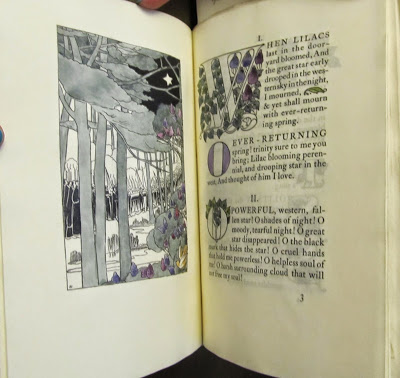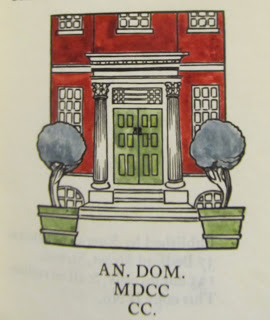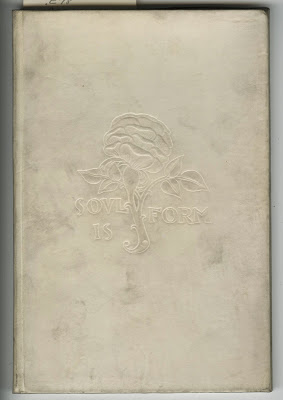This week marked the end of the four-and-a-half year run of our “Today in the Civil War” blog and this weekend is also the final weekend of our Oscar Wilde in Philadelphia exhibit, so what better way to celebrate both of these occasions than with a poem by Walt Whitman about the death of Abram Lincoln.
 |
| Walt Whitman, President Lincoln’s Funeral Hymn. London; Essex House Press, 1900. FP E78 900w. The Rosenbach of the Free Library of Philadelphia |
Somehow, despite all the work I’ve done with our Civil War and Lincoln materials over the past seven years, I had never run across this beautiful little edition of “When Lilacs Last in the Dooryard Bloom’d.”
The poem is Walt Whitman’s elegy for Lincoln, whom he describes in the second stanza as “O powerful western fallen star!…O great star disappear’d.” It was written in the summer of 1865 and incorporates a
description of Lincoln’s funeral train which wound its way through
the northern states, conducting multiple funerals in cities along the way:
Over the breast of the spring, the land, amid cities,
Amid lanes and through old woods, where lately the violets peep’d from the ground, spotting the gray debris,
Amid the grass in the fields each side of the lanes, passing the endless grass,
Passing the yellow-spear’d wheat, every grain from its shroud in the dark-brown fields uprisen,
Passing the apple-tree blows of white and pink in the orchards,
Carrying a corpse to where it shall rest in the grave,
Night and day journeys a coffin.
Coffin that passes through lanes and streets,
Through day and night with the great cloud darkening the land,
With the pomp of the inloop’d flags with the cities draped in black,
With the show of the States themselves as of crape-veil’d women standing,
With processions long and winding and the flambeaus of the night,
With the countless torches lit, with the silent sea of faces and the unbared heads,
With the waiting depot, the arriving coffin, and the sombre faces,
With dirges through the night, with the thousand voices rising strong and solemn,
With all the mournful voices of the dirges pour’d around the coffin,
The dim-lit churches and the shuddering organs—where amid these you journey,
With the tolling tolling bells’ perpetual clang,
Here, coffin that slowly passes,
I give you my sprig of lilac.
“Lilacs” was first published in Sequel to Drum Taps, a collection of Whitman’s war poetry, in the fall of 1865. It would be incorporated into his ever-changing Leaves of Grass beginning with the 1867 fourth edition. But the book that caught my eye when I stumbled across it this week was a fine press edition, entitled President Lincoln’s
Funeral Hymn, from C.R. Ashbee’s Essex House Press.
Ashbee, an architect and designer,
was the founder of the Guild of Handicraft. The guild produced
metalwork, furniture, jewelry, and enamel in a cooperative workshop
housed in Essex House, the 18th-century mansion whose entrance is shown
in the Funeral Hymn colophon below. In 1898 they added a press when Ashbee purchased
the Kelmscott Press’s Albion presses and hired some of their staff after the death of William Morris.
 |
| Walt Whitman, President Lincoln’s Funeral Hymn. London; Essex House Press, 1900. FP E78 900w. The Rosenbach of the Free Library of Philadelphia |
Funeral Hymn, like other Essex House books, is lovely. The slim
volume containing only the single poem was issued in an edition of 135 copies, all printed on and
bound in vellum. It was part of a series of fourteen poems printed by Essex
House.
“for soul is form and doth the body make” – encapsulates the Arts and
Crafts concept that the best craftsmanship is informed by the thriving
soul of an inspired craftsman.”
 |
| Walt Whitman, President Lincoln’s Funeral Hymn. London; Essex House Press, 1900. FP E78 900w. The Rosenbach of the Free Library of Philadelphia |
 |
| Walt Whitman, President Lincoln’s Funeral Hymn. London; Essex House Press, 1900. FP E78 900w. The Rosenbach of the Free Library of Philadelphia |

